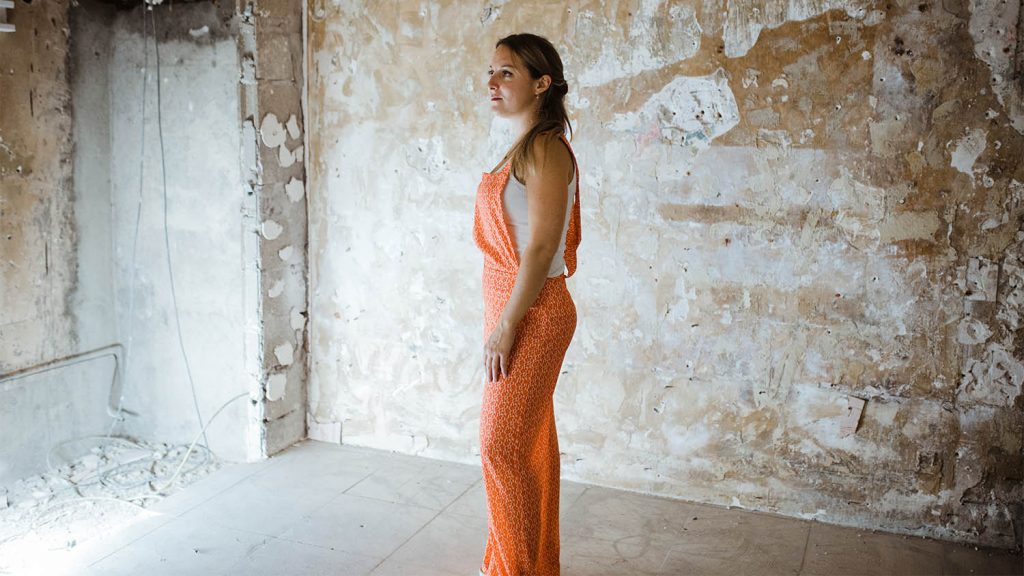Jumping into EMDIEL
The EMDIEL at ESCP Business School appealed to Charlotte for its multicultural and entrepreneurial aspects. This international experience was eye-opening but also intense, she shares. One of the key aspects of the successful experience was the group, she explains, everyone supported and encouraged each other. With such diverse previous experiences, it was a source of inspiration.
Before the programme, Charlotte was looking for something different from her corporate position. ESCP ‘happened’ at a moment where she wanted to change. “It was the pillar that I needed right at that moment in my life”, she shares. One memorable event was the trip to Shanghai, where the cohort worked intensely during the day and then visited the city at night, to then start all over again the next day. San Francisco was another destination that challenged Charlotte. Spending a week with giant tech companies such as Salesforce was a memorable experience and a key aspect of the programme.
From Ideation to Concept
Her entrepreneurial mindset started before joining the EMDIEL at ESCP, but she did not know yet whether she would be able to live her dream. Although she was thinking of different ideas for her own company, they were not very feasible at first. “It took me the whole programme to understand that the business model attached to my idea was not working”, she shares. She learned that the key is to focus, try, and if it does not work to move on and create a new project.
Hence, the best thing she learned during the EMDIEL programme is to trust yourself even if you fail. Her master’s degree at ESCP gave her the flexibility to try different projects and gave her the strength and opportunity to explore different ideas. This learning point was successful. Afterwards, she started another project, which eventually became UpTrade. Within a few months of graduating from the programme, Charlotte left her previous position to concentrate fully on her start-up.

The Journey Towards Upcycling
Before UpTrade, Charlotte worked for a company that traded inventories of unsold products. She saw that finding a solution to sell these goods was a challenge. Yet, the textile and fashion industry was even more difficult. She noticed a gap between what the brands wanted from their overstock and the market reality that did not have the same demand. Charlotte asked herself questions about the supply chain of fashion and why we overproduce since a lot of textiles are left unsold. In fact, of the 400 billion square meters of fabric manufactured worldwide each year, 10% to 20% of production, or about 60 billion square meters, will never be used (ADEME). Her business mindset kicked-in, she explored where the opportunity was and found the spot where she could change the industry. She realized the solution that she wanted to offer consumers was not to resell unsold clothing items.
From what she learned about the supply chains of the textile sector, Charlotte realized that there was a gap between forgotten fabric and smaller brands who would be interested in this supply. The goal became to repurpose all fabric scraps. UpTrade aims to be the intermediary between textile producers and fashion brands. Many brands become aware of their environmental footprint with unsold inventories and others are looking for fabrics: Charlotte and UpTrade found their gap in the market and support the trade between these actors.
Sustainability and Entrepreneurship
After starting UpTrade in May 2019, Charlotte soon met her co-founder. By August, they bought the first inventory and launched the website. However, they realized that they could not buy everything and have a significant inventory. Their business model shifted to offer producers and brands to send them inventory. On their side, they sell to the seller and are financed by a commission for these sales. This has proven to be very successful.
Revolutionizing the textile industry is a challenge but also very exciting for Charlotte. She and her co-founder are constantly working to inform consumers and increase transparency about supply chains. The awareness is rising as many consumers are asking to know how their clothing items were produced. Still, another problem lies in the chemicals that are used in the production process. Consumers do not realize how dangerous they can be for one’s skin and health.

Impact that will Resonate Through 2021
Today, UpTrade’s long-term vision is to build a community in France and then expand to other European countries such as Switzerland, Denmark, Sweden, Germany, the UK and eventually the US. Demand has also increased with the pandemic, which made the environmental footprint of the textile industry even more clear.
When COVID-19 began, and a lot of production was stopped, the whole industry experienced the effects. Charlotte feels like this increased awareness by brands and consumers. She is optimistic and hopeful that green awareness within fashion will become cultural and even mandatory for every fashion brand in the future.
Last Words from an EMDIEL Alumna
One word to describe UpTrade: Smart
One word to describe your experience as an entrepreneur: a Challenge
One recommendation: Phil Knight – Shoe Dog
One piece of advice: “The sun is still going up tomorrow, if you cannot do it all that is okay and the world won’t stop.”
A favourite quote: “If you are going through hell, keep going.” -Winston Churchill
UpTrade offers you a revaluation solution for your fabric stocks and allows professionals to create their products from existing raw materials. Reach out to them on LinkedIn and Instagram.